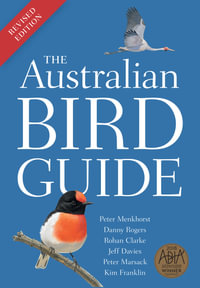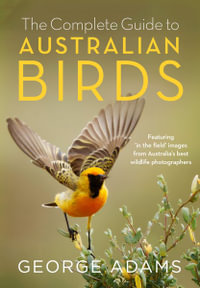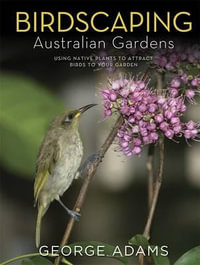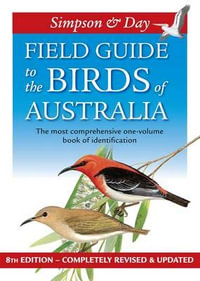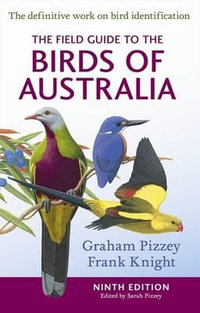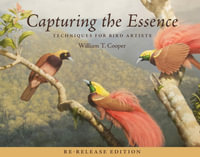Discover the birds of the world in this beautiful fact-packed compendium.
This book will take readers on a flying visit round the world, scouring the seven continents for the biggest, brightest and best birds on the planet.
Urban Jungle creator Vicky Woodgate perfectly captures the brilliance of the bird world, each chapter taking us to a new continent and introducing birds from hummingbirds to hawks, and parrots to penguins. With a vintage travelogue feel, vibrant artwork and fascinating annotations, it is a book that will appeal to wildlife lovers from 7 to 70!
About the Author
Vicky Woodgate has been illustrating for over 10 years. Having studied design and illustration at Chelsea Art School, she found herself working within the TV, film and theme-park industry as a scenic artist. After 10 years, she moved into publishing, working on newspapers, magazines, books and advertising. Vicky has always had a passion for wildlife, and loves travelling, writing and drawing maps. She is based in Brighton, UK.
Industry Reviews
There has been a lot of coverage in the press (especially with the publication of Robert MacFarlane's and Jackie Morris's beautiful book The Lost Words) about how today's children are struggling to identify common animals, birds, insects and plants. According to a poll by Wilko in 2016, one in four primary-school children cannot identify a blackbird or robin. This inspired author and illustrator Vicky Woodgate to create this beautiful picture and reference book, which not only looks at birds close to home but also explores those around the world. There are 10,000 different species of birds in the world, so to look at all of these in one book is clearly impossible! Instead, Vicky has chosen 75 and examined what makes them so special.
In the beginning, Vicky sums up what unites all the birds of the world. They:
are all vertebrates (ie they have a skeleton)hatch from eggshave horny beaks (at least, the adults do!)have feathersare all descended from feathered, meat-eating dinosaurs that lived millions of years ago (how cool is that: to have a relative of a dinosaur eating up your breakfast crumbs?).I found it fascinating to read that the shape of a bird's beak is determined by their lifestyle and diet, that they have nostrils for smelling, and that they have four toes: three facing forward and one facing back. Their wings also determine how the bird flies.
The book is divided and colour-coded into seven continents, highlighting species of birds that live in each. Vicky includes enough information on the birds to make it interesting and memorable and her drawings are beautiful - detailed but not dry. The pages have pale, dusky colours that set the birds off well, with a squared background to make the paper look more as if it has come from an exercise book. There are added extras, too: named plants, nests, etc.
I learned a lot reading A World of Birds. Some of my favourite discoveries were:
The Laughing Kookaburra, which literally screeches with laughter and is the largest member of the kingfisher family.The Macaroni Penguin, which is named after the lavish hairstyles of 18th-century gentlemen called Macaronis.The Eurasian Hoopoe, whose superpower is a dreadful stench that drives potential predators away. Yuk but clever!The Blue-Footed Booby, which is as clumsy as its name seems to suggest. It uses its big feet to do some dad dancing and marching during courtship and, apparently, the bluer the feet, the more attractive it is! The name comes from the Spanish word bobo, which means 'clown' and this bird certainly lives up to its name!
This book is going straight into my non-fiction collection. It's one that I know I will want to keep returning to as I love fact books that entertain as well as inform. Children and adults will get equal enjoyment from this fun and informative title. * Childtastic Books *
Take a flying visit around the
world, scouring the seven
continents for the biggest,
brightest and best birds on
the planet.A
fascinating look at
some birds we are
familiar with, such
as owls, common
cuckoo and toucan
to the less familiar
such as the great
crested grebe,
the hoatzin or
the resplendent
quetzal. Great
illustrations which
are clear and
interesting too! * Creative Steps *
A World of Birds is a beautifully crafted non-fiction text, which introduces the reader to 75 birds across all seven continents. I immediately warmed to the author when I read the acknowledgement 'For my best friend Asa who knows nothing about birds'. This book was for me.
The first six pages tell you everything you need to know about the generic features of birds, and provided me with a clear structure on which to hang the fascinating details that followed. Each continent is introduced with a map which you can use to track migratory flights. Although this is a book many would just dip into, I read it from cover to cover due to the beautiful illustrations and quirky facts. Did you know the ostrich is the only bird to have two toes? I was also very excited to learn about precocial chicks, which can stand within minutes of hatching, fully feathered and ready to forage. The adjective 'precocious' now makes so much more sense.
Every detail of the illustrations provides the right balance of informative detail without overloading the reader. The pastel shades of background squared paper are easy on the eye and divide up the continents.. The use of outline sketches alongside the fully-coloured and annotated diagrams allowed the reader to move from the key features to fascinating details easily. Each page then hones in on the particular characteristics of one bird: their calls, the history of their names, their size, mating habits, sources of food and the state of their natural environment.
What I liked about this book is that it doesn't work to a set formula. For each bird, Vicky Woodgate has selected a few interesting key pieces of information, which the reader is likely to remember. I appreciated this 'less is more' approach and think younger readers will too.
Subtly underpinning this excellent example of non-fiction is the message about the fragile state of the environment of many of these birds. I am tempted to say this would make an excellent Guided Reading book, but the cost may prohibit this. Pupils could use all their non-fiction reading skills to locate information and the book would provide a fabulous springboard for further discussions about nature and the environment.
At the very least, every school library needs a copy of A World of Birds * Just Imagine *
As children, many of us probably spent more than one wet day poring over Dorling Kindersley-style illustrated books, eagerly taking in the facts and figures.
Vicky Woodgate's A World of Birds uses a similar fact-based approach to introduce a selection of 75 species from across the globe, from magnificent frigatebirds to kingfishers to eclectus parrots. Special adaptive features are picked out, along with various quirky snippets on behaviour and biology.
While my three-year-old enjoyed the colourful illustrations and pointing out the species he recognised, the book's main appeal will be to slightly older children, who will no doubt delight in reciting their new-found knowledge: wild turkeys, for instance, can run at speeds of up to 40kmph; bee hummingbird eggs are the size of
peas; and kingfishers have a third, transparent eyelid. * Discover Wildlife *
It is rare to find a compact information book containing such carefully selected facts and descriptions of 74 different birds - their habits, courtship and partnership behaviour, food, flight, speed and particularly notable features, like the cassowary's kick. Each bird is given a whole page, colourfully illustrated and clearly annotated. It is helpfully arranged in continents, each clealy mapped, with a concise contents' list, a two-page spread, and a very usable index. A most informative and interesting reference book for school and class libraries, but also ideal as a gift for budding ornithologists, both young and no so young. * Carousel *





